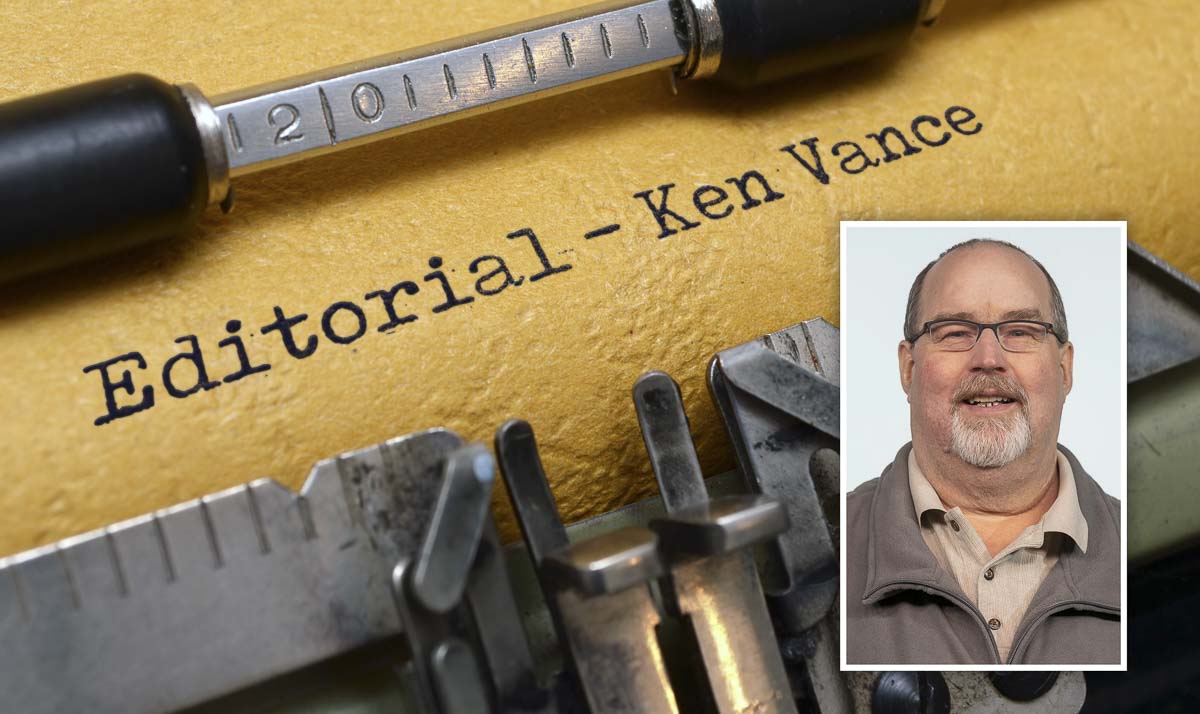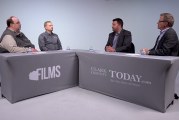
Reps. Brandon Vick and Larry Hoff enlighten Clark County residents with revealing comments about education funding, transportation congestion solutions
ClarkCountyToday.com reporter Chris Brown and I had the opportunity to sit down with Reps. Brandon Vick and Larry Hoff, both of the 18th Legislative District, for a discussion Friday. The lawmakers were making the rounds to media outlets in Clark County and were gracious enough to include us in their tour.
The legislators didn’t have an agenda. I offered to allow them to suggest some talking points if they had anything specific on their mind, but they declined, allowing Chris and I to set the topics for the discussion.
So, Chris and I chose four basic topics for the 32-minute conversation. If you don’t have time to view the entire discussion, feel free to advance to the minute mark of a specific topic listed below:
00:30 — Tax increases
06:48 — Democratic majority in the Washington Legislature
12:15 — Transportation congestion issues
19:47 — Education funding crisis
A conversation with 18th District Reps. Brandon Vick and Larry Hoff

For me, there were several points of clarity for me during the conversation with the two Republicans, who were each equally engaging and enlightening in their responses to our questions. My apologies to Rep. Hoff, however, it just so happens that two of those moments in the conversation that I want to elaborate on came from comments made by Vick.
I don’t believe any reporter in Clark County did a better job than Chris Brown last fall of educating us all on what were the details of the education funding crisis that led to teacher strikes in nearly all of the school districts in the area. Those strikes ended only after teachers negotiated new contracts that handed them eye-opening, scalp-scratching double-digit raises.
I can’t tell you how many conversations I had last fall with teachers and those supporting them that the money allocated by the Washington State Legislature to address the McCleary Decision was designated solely for teacher salaries. I stated in this editorial I published Sept. 8, 2018 that was a lie being fed to the teachers by their unions:
New law protects docs who prescribe ivermectin, hydroxychloroquine

It was not my intention to specifically readdress this in our conversation with Vick and Hoff, in fact, Chris was the one who was going to ask the legislators the question(s) about education funding. Something Vick said prompted me to seize the opportunity to directly ask the question: Was too much of the McCleary money devoted to teacher salaries.
“I think in the way it was allocated, the answer has to be ‘yes,’’’ Vick said. “In the original McCleary fix, (House Bill) 2242, we had a cap on raises of 3.1 percent per year. At the end of that first year, that extra billion dollars that we kept hearing about, was going to kick in but that inflationary number, 3.1 percent, had to stay in place. You can argue that wasn’t enough or you can argue it was too much, but that wasn’t the argument. The argument was, we had it planned out so it was going to work. When the following year came and the next senate bill passed, I don’t remember the number, that cap went away and that billion dollars came in a year earlier and so you took a system that was planned to increase in steps and you did it all at once. I think it was all about how do you do it in the most responsible way possible and I don’t think we did it in the most responsible way possible.’’
That doesn’t sound like a member of the legislature who was in on any declaration that the McCleary money was designated specifically for teacher salaries. In fact, Vick pointed out that as a Republican, it’s not his desire to have the state lawmakers trump local jurisdiction by dictating anything more than the minimum direction possible.
“As Republicans, we believe in local control,’’ Vick said. “We believe government closest to the people makes the best decisions. But, when we talk about school districts we almost have to take a step back and say ‘this is 53 percent of the state budget. This is a ton of money and we’re sending it to you and we’re hoping you do the right thing.’ Yes, there are some side boards, but do we need to do a better job as a legislature of saying, ‘this pot of money — staff; this pot of money, playground equipment; this pot of money, sports.’ And, I think that’s unfortunately where we are going to have to get is being prescriptive because some districts are stronger than others, some bargaining teams are stronger than others, because it’s not working out the way it was envisioned. And, so going back to the drawing board as the ultimate people with fiduciary responsibility over this money, I think we are going to have to be more prescriptive and unfortunately take a little more state control, but I think that’s the only way out of some of these things we are seeing.’’
So, if that legislator has his way, it sounds like the trust that lawmakers extended to the school districts’ and the teachers’ unions last fall to divide the McCleary money responsibly won’t be offered in the future.
Tolls, light rail
Both Vick and Hoff were original sponsors of Engrossed Substitute House Bill 1994, which was recently signed by Gov. Jay Inslee after passing the legislature during this session. The bill provides a framework for designating projects of state-wide significance and its supporters are focused largely on the replacement of the I-5 Bridge and is supported by virtually all Clark County lawmakers except Rep. Vicki Kraft (R-17th District).
Vick is a member of the Joint Oregon-Washington Legislative Action Committee. He told us that he has been promised that the committee will continue to discuss a third crossing over the Columbia River, but he said the reality is that the I-5 Bridge replacement is what is “possible’’ at this time. Hoff shared the same opinion.
During the discussion, Vick referenced the failed Columbia River Crossing (CRC) project and how the I-5 Bridge replacement project that he envisions will be much different.
“For me, I’m very invested in the I-5 project for a couple of reasons,’’ Vick said. “First, by being at the table, I’ve had assurances, and I hope they will stick, that we will get a plan together for a third, and possibly a fourth crossing, down the road. Those are long-term projections. They are going to cost a lot of money, but those are things we have to get on the table. But, more importantly, should an I-5 bridge replacement project go forward, and again I believe it will, I don’t know when, I want to make sure our values are represented in that.
“The last time the I-5 project fell apart was, of course, the CRC, and look, there were a lot of problems,’’ Vick said. “There were outrageous tolls. There was the potential for the light rail system. I don’t think the constituents were well represented in that discussion and it fell apart because of it I believe. So, the reason I’ve been so involved, and I guess an advocate of now, is because I think we can do it right. Ii think we can do it in a more economically responsible manner. I think we can do it for much cheaper than we had the CRC on line for and I think all the views will get represented to a greater extent by having us at the table on this. Would it be great to have a third bridge first? One hundred percent. If I could do it, I would. But, I just don’t see where the stars would line up to get it done right now.’’




